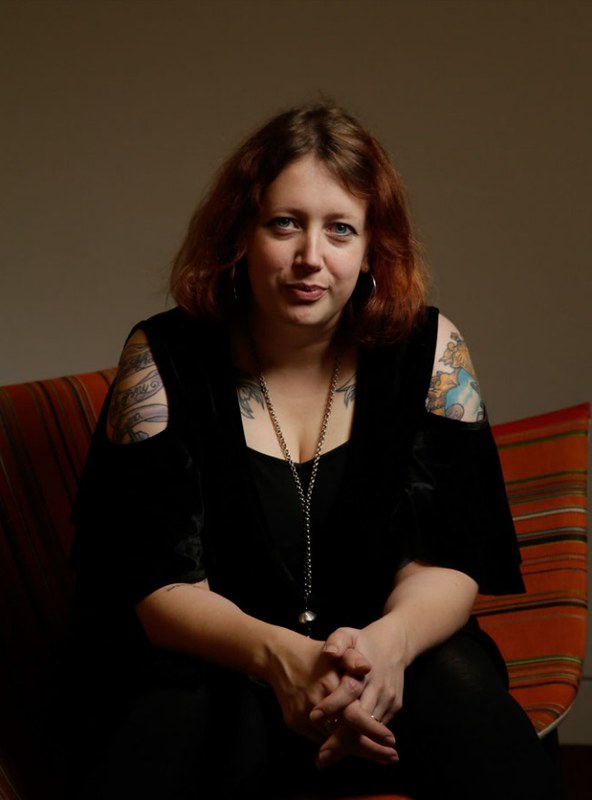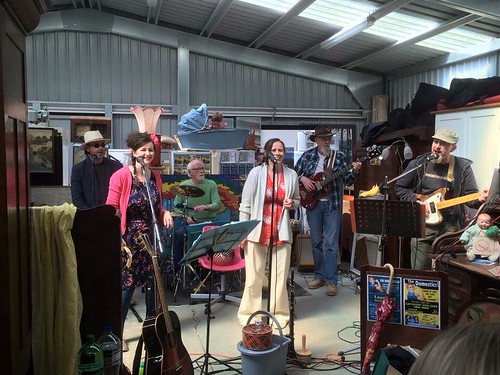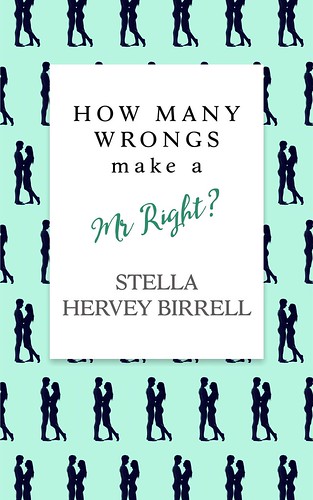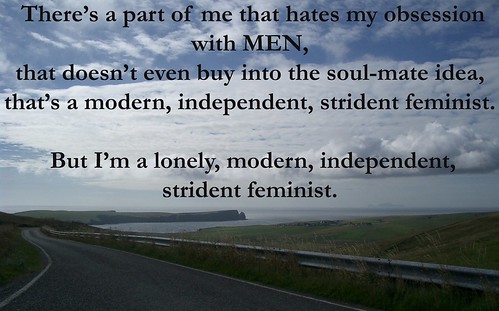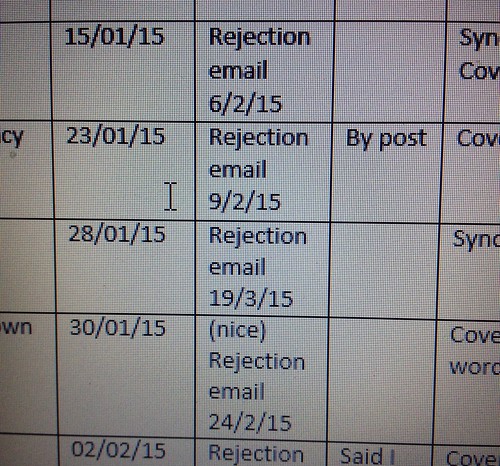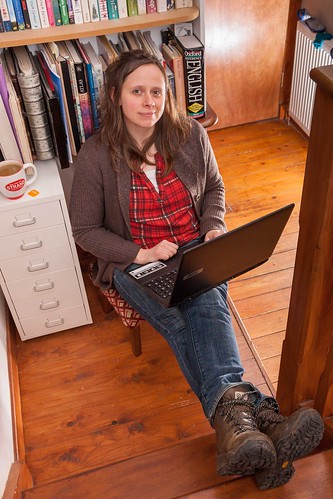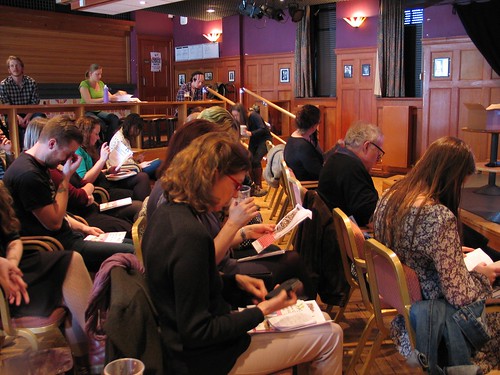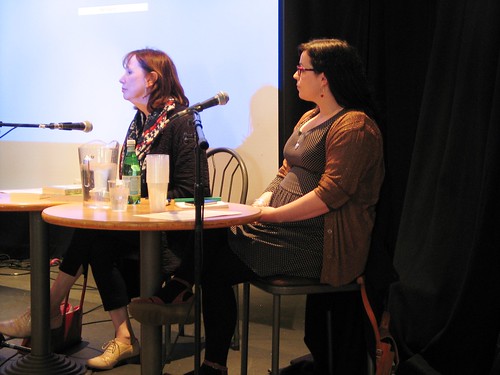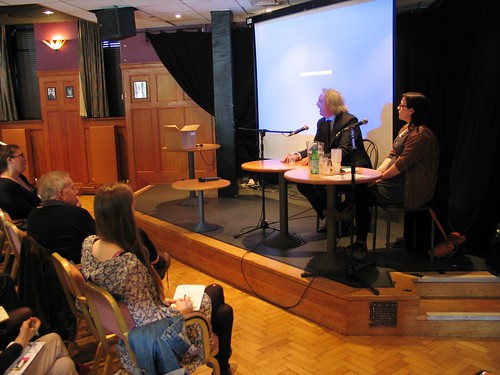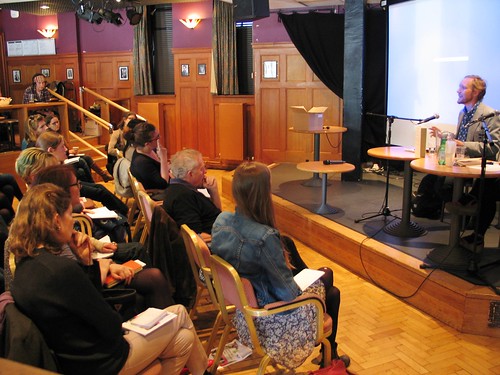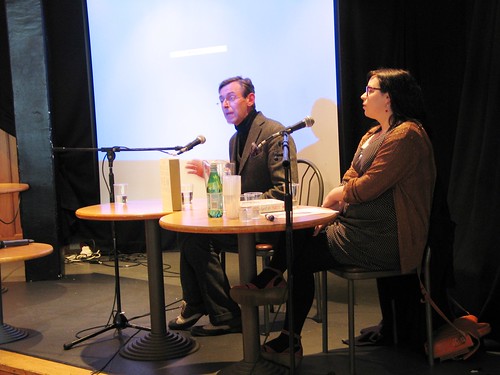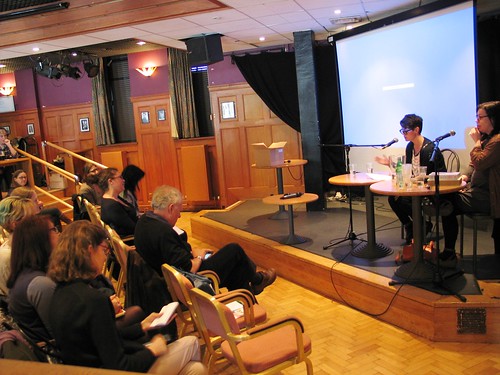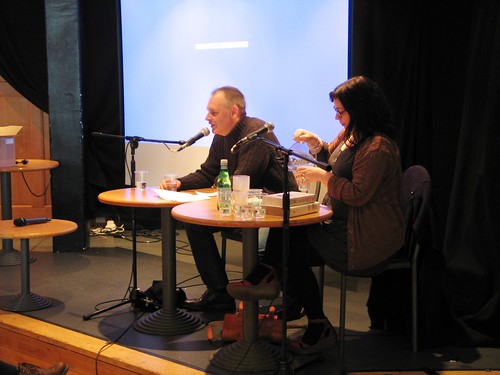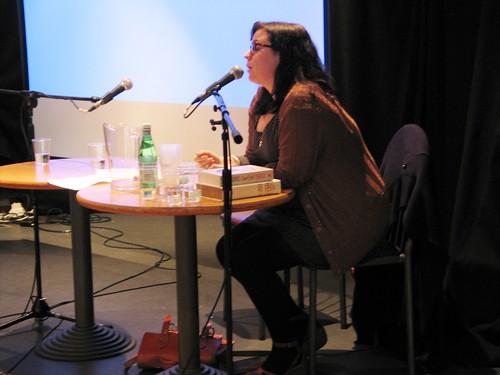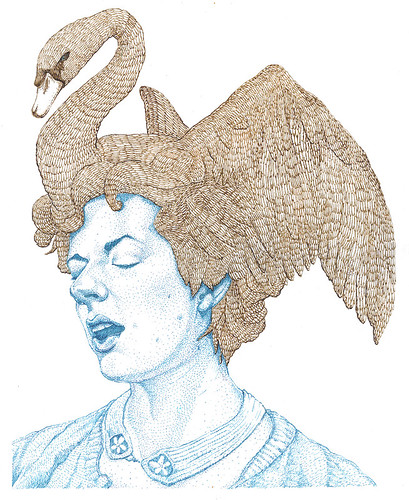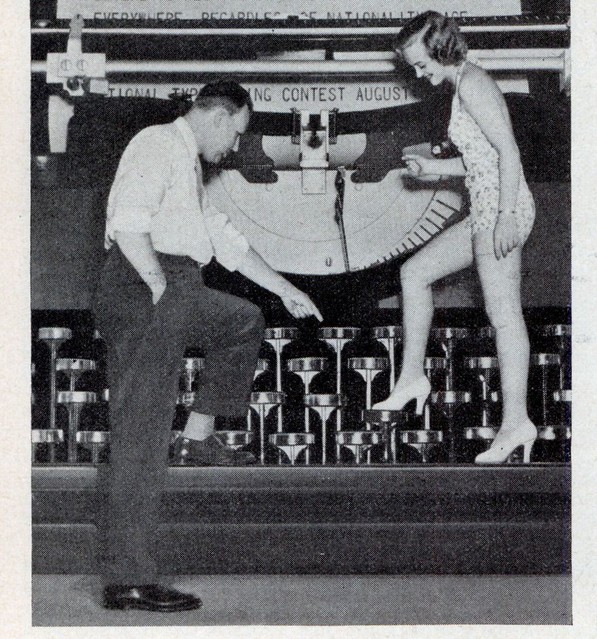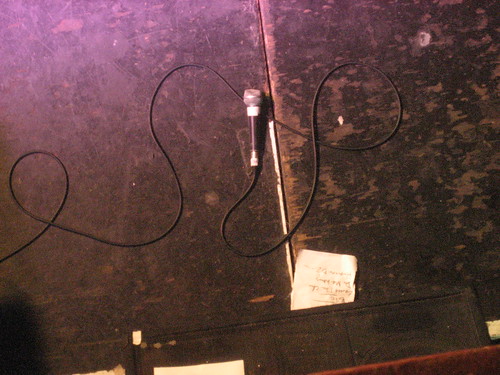Book Week Scotland x All The Hidden Truths: a tour of Scottish FE colleges!
Tuesday, November 6th, 2018Rebel Claire Askew embarks on Scottish student tour for Book Week Scotland
Book Week Scotland 2018 runs from 19 November to 25 November
#BookWeekScotland
Rebellious, award winning Scottish author Claire Askew will embark on a tour for Scottish students as part of Book Week Scotland.
Appearing in six colleges across east and central Scotland over five days, members of the public are also welcomed at a number of the events. Last year Book Week Scotland, organised by Scottish Book Trust, toured colleges in the west and south of Scotland. This year, Scottish Book Trust will visit Newbattle Abbey College, Perth College, Fife College, West Lothian College, Edinburgh College and Forth Valley College.
Claire Askew is a poet, novelist and the current Writer in Residence at the University of Edinburgh. Her debut novel, All the Hidden Truths, was the winner of the 2016 Lucy Cavendish Fiction Prize, and longlisted for the 2014 Peggy Chapman-Andrews (Bridport) Novel Award. Claire holds a PhD in Creative Writing from the University of Edinburgh and has won a variety of accolades for her work, including the Jessie Kesson Fellowship and a Scottish Book Trust New Writers Award.
Her debut poetry collection, This changes things, was published in 2016 and shortlisted for the Edwin Morgan Poetry Award and a Saltire First Book Award. In 2016 Claire was selected as a Scottish Book Trust Reading Champion, and she works as the Scotland tutor for women’s writing initiatives Write Like A Grrrl! and #GrrrlCon.
Claire is passionate about working as a writer in communities in Scotland, particularly with marginalised or hard-to-reach groups and young adults. In her books Claire tackles tough themes like violent misogyny and nuanced characters and events, shining a light on difficult topics.
Working with a wide range of partners, Scottish Book Trust – the national charity changing lives through reading and writing – will deliver events and activities across the country during Book Week Scotland 2018, which runs from 19 November to 25 November, linked to this year’s theme of Rebel.
During Book Week Scotland there are hundreds of free events taking place across many different local authorities, funded by Scottish Library and Information Council (SLIC).
Marc Lambert, CEO of Scottish Book Trust, said: “Claire Askew is a writer that embodies the rebellious theme of this year’s Book Week Scotland. Tackling tough topics that are often on the edge of taboo, Claire is an important voice in Scottish literature and represents the importance of literature as an outlet to explore difficult and complex issues. Scottish Book Trust is delighted to bring this tour to colleges, and the potential next generation of writers, as part of Book Week Scotland.”
Claire Askew said: “I’m absolutely thrilled to be going on a tour of some of Scotland’s FE colleges this Book Week Scotland! I worked as a further education lecturer for five years, and know what vibrant, essential places our colleges are. Books can take us to all sorts of places – they can provide an escape into magical worlds, they can make us smile and lift our mood, or help us think differently about the world. My novel, All The Hidden Truths, aims to get readers thinking about how we respond to tragedy: as individuals and as communities. I know that the students I’ll meet during Book Week Scotland will have a great deal to bring to these conversations, and I can’t wait to talk with them.”
Full tour schedule:
Monday 19th November
9:30am to 11:00am, Newbattle Abbey College, Newbattle Rd, Newbattle, Dalkeith EH22 3LL
Unticketed, more info here!
2:30pm to 4:00pm, Perth College, Crieff Rd, Perth PH1 2NX
Book tickets here!
Wednesday 21st November
Fife College (students only)
Thursday 22nd November
9:30am to 11:00am, West Lothian College, Almondvale Cres, Livingston EH54 7EP
Unticketed, more info here!
Edinburgh College (students only)
Friday 23rd November
9:30am to 11:00am, Forth Valley College, 1 Devon Rd, Alloa FK10 1PX
Unticketed, more info here!
*
If you are interested in an interview with Claire Askew or would like a reporter or photographer to attend one of the events please contact Keara.Donnachie@scottishbooktrust.com or call 0131 524 0184.
Scottish Book Trust is a national charity changing lives through reading and writing. We inspire and support the people of Scotland to read and write for pleasure though programmes and outreach work that include:
• Gifting books to every child in Scotland to ensure families of all backgrounds can share the joy of books at home.
• Working with teachers to inspire children to develop a love of reading, creating innovative classroom activities, book awards and author events.
• Supporting Scotland’s diverse writing community with our training, awards and writing opportunities.
• Funding a range of author events for the public to enjoy and promoting Scottish writing to people worldwide.
www.scottishbooktrust.com @scottishbktrust www.facebook.com/scottishbktrust
For more information about Book Week Scotland, visit www.bookweekscotland.com. Follow @Bookweekscot on Twitter, check out #bookweekscotland or like the Book Week Scotland Facebook page.
Creative Scotland
In addition to general fundraising, Scottish Book Trust receives Creative Scotland support through Regular Funding. Creative Scotland is the public body that supports the arts, screen and creative industries across all parts of Scotland on behalf of everyone who lives, works or visits here. We enable people and organisations to work in and experience the arts, screen and creative industries in Scotland by helping others to develop great ideas and bring them to life. We distribute funding provided by the Scottish Government and the National Lottery. For further information about Creative Scotland please visit www.creativescotland.com. Follow us @creativescots and www.facebook.com/CreativeScotland
The Scottish Library and Information Council (SLIC) is the independent advisory body to the Scottish Government on library and information services. It leads the implementation of Ambition and Opportunity: A strategy for public libraries in Scotland 2015–2020, develops innovative projects like Film Education in Libraries and provides support for libraries in the form of advocacy, consultation and research. It administers Scottish Government funding for public libraries (Public Library Improvement Fund), for school libraries (School Libraries Improvement Fund) and funding for the wider library and information sector (Innovation and Development Fund). It supports public libraries to participate in Book Week Scotland by providing Scottish Book Trust with event funding for every public library service and Further Education College Libraries.
